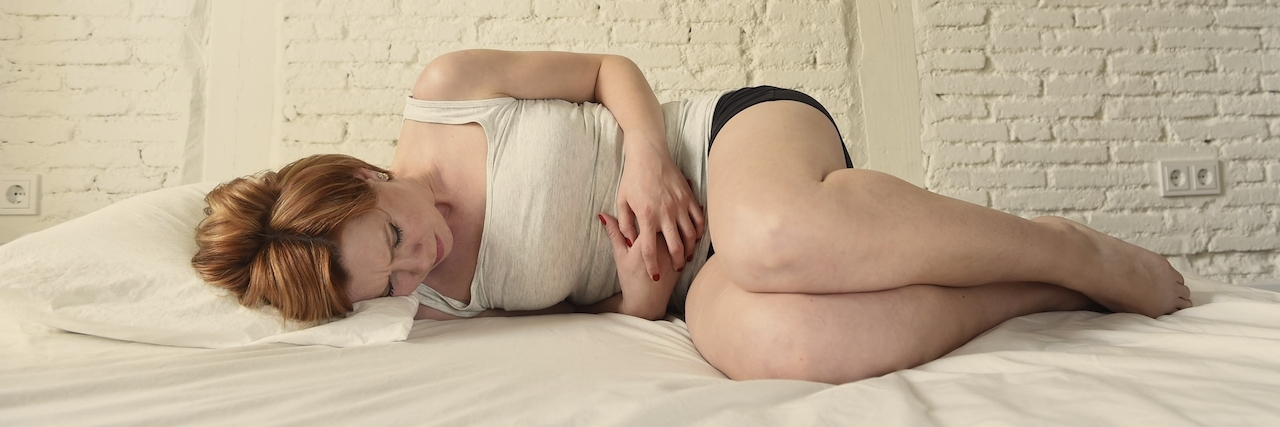According to the National Institute of Arthritis and Musculoskeletal and Skin Diseases (NIAMS), it is estimated that 80-90 percent of people diagnosed with fibromyalgia, are women. The diagnosis of fibromyalgia for men and children is estimated between 10-20 percent. Many women diagnosed fibromyalgia are still able to menstruate, yet there is very little information available for fibromyalgia patients about dealing with their periods.
- What is Fibromyalgia?
- What Are Common Fibromyalgia Symptoms?
At 6 years old, I started to have fibromyalgia symptoms. By 11 years old, I was finally diagnosed. I was just starting to get used to my symptoms before I started puberty.
Now, in my mid-twenties, not only do I better understand my fibromyalgia, but I’ve also learned how to better deal with my fibromyalgia symptoms during my period:
1. Experiencing more intense pain. This is obvious for two reasons. One, it is common for women on their period to be more susceptible to pain. Two, any illness or bodily change does cause my fibromyalgia pain to increase. Though I was told it was “completely normal” to have some discomfort on my period, I was unprepared for what I would really feel. At times, I feel like I was just hit by a car. The pain can become so frequent, I have to stay in bed.
2. Experiencing increased fatigue. When I’m on my period, my fatigue syndrome feels twice as bad. I also have a harder time sleeping during the first two nights of my period. For the rest of my period, I’m exhausted. To compensate for my exhaustion, I try to sleep as early as possible, nap, or at least rest for a few minutes.
3. Avoiding overexertion. Having work, school, home and family obligations, I do my best to not over do overexert myself. With less energy and more pain during my period, it’s twice as difficult to function. So I try to pace myself by prioritizing what must be done, versus what I’d like to do.
4. Not feeling guilty for doing less. With all of my obligations, I feel guilty I cannot do everything I normally would do. I feel I’m “lazy” for only doing the bare minimum. But when I’m overexerting myself, I wind up running myself ragged. This begins a vicious cycle of increased pain, less mobility and more fatigue. I end up doing less than I can normally on my period. Listening to the guilt is not worth the price I have to pay.
5. Creating a reasonable daily schedule. The best way to handle my period is to make myself a daily schedule. A few days before my period, I try to get larger obligations done, i.e. major projects and test/exams. This also helps to reduces my stress during my period. Because my schedule can change without a moment’s notice during my period, I have a dry erase board, listing everything that I need to do and what I would like to do. This helps me to prioritize my day. When I am able to erase a chore or obligation off the dry erase board, it not only gives me a feeling of achievement, but also encourages me to complete the rest of my list. Though I might not be able to do everything I want, I still have the next day to catch up.
After my period, I take time to evaluate what helped me the least and most, during my period. Was I able to complete my obligations? Can I do a little more next time? Or do I need to pull back? Other factors that also impact me, especially during my period, include the weather (generally, I feel more pain during cold weather), an illness, or an accident — for example, falling.
Although fibromyalgia is a daily, unpredictable challenge, I have had it long enough to find patterns. I use the patterns to determine what helps me when I’m having increased pain. Though fibromyalgia is a constant challenge, I don’t let it control me.
The Mighty is asking the following: Create a list-style story of your choice in regards to disability, disease or mental illness. Check out our Submit a Story page for more about our submission guidelines.

